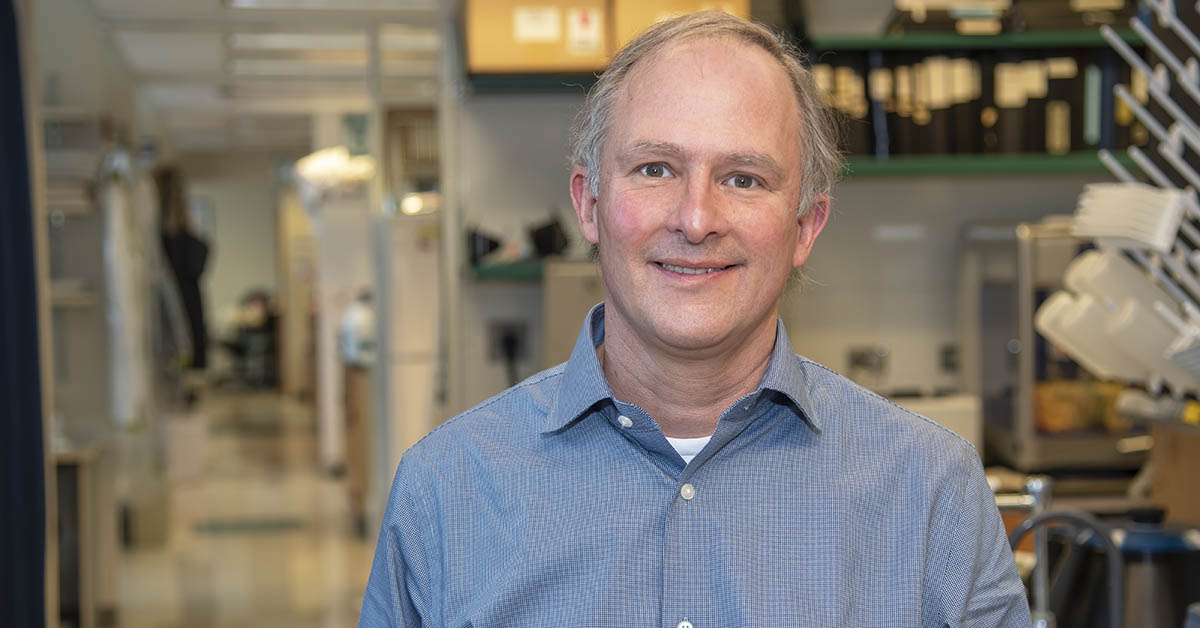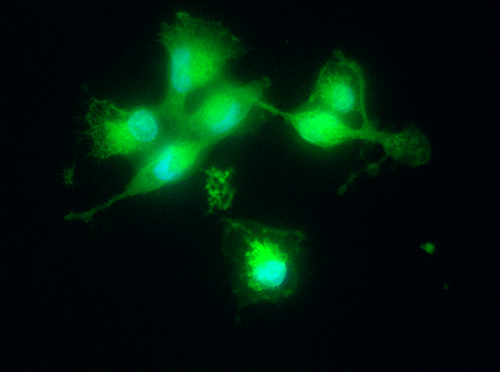
PHILADELPHIA (April 14, 2021) – In a study published today, researchers at Fox Chase Cancer Center announced that they have discovered a novel approach to triggering a type of cancer cell death called ferroptosis that could have therapeutic potential.
Instead of targeting a cancer cell with a drug, the researchers attempted to harness the power of a nutrient—a naturally occurring fatty acid—to act as a type of Trojan horse that is taken up into the cancer cell, where it triggers cell death by ferroptosis.
“Ferroptosis was first characterized in 2012 and is still relatively new compared with the more commonly known type of cell death called apoptosis,” said Jeffrey R. Peterson, PhD, a professor in the Cancer Signaling and Epigenetics Program at Fox Chase. He conducted the study with lead author Alexander Beatty, PhD, a postdoctoral fellow in Peterson’s lab.

“There is a lot of excitement around the possibility that ferroptosis can be harnessed to treat cancer. But the question is how,” Peterson added.
One of the hallmarks of ferroptosis is the accumulation of lipid-reactive oxygen species, toxic molecules that can accumulate and cause cell death. Peterson and colleagues conducted a study to explore whether ferroptosis in cancer cells could be triggered by using polyunsaturated fatty acids to form lipid-reactive oxygen species.
In their study, they were able to use alpha-eleostearic acid, a conjugated fatty acid, to induce ferroptosis in diverse cancer cell types. In a mouse model of triple-negative breast cancer, they orally administered tung oil, which is naturally rich in alpha-eleostearic acid, and found that it limited tumor growth and metastasis.
Additionally, Peterson and colleagues found that alpha-eleostearic acid did not alter the activity of glutathione peroxidase 4 (GPX4), a cellular enzyme that detoxifies lipid-reactive oxygen species. Other researchers have explored the use of GPX4 inhibitors that work to neutralize GPX4 and, thus, the cells’ ability to cope with those lipid-reactive oxygen species, causing their accumulation and leading to cell death.
“In principal, these two strategies can be combined therapeutically as two sides of the same coin,” Peterson said. “Inhibiting GPX4 and promoting lipid-reactive oxygen species would work together to drive cancer cell death.”
If drugs targeting GPX4 become available, these two strategies may be combined to enhance antitumor activity in patients.
The study, “Ferroptotic Cell Death Triggered by Conjugated Linolenic Acids is Mediated by ACSL1,” was published in Nature Communications.